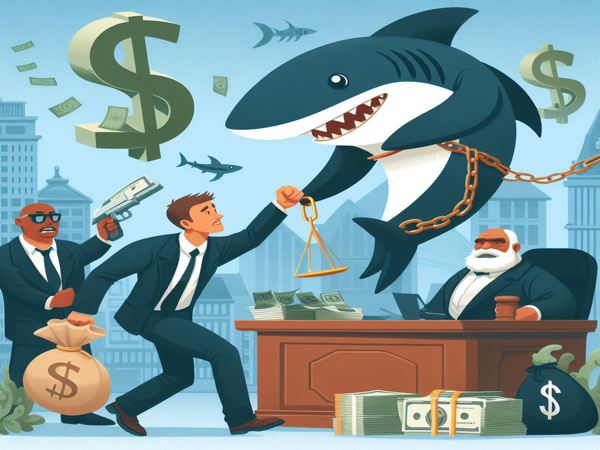In the complex landscape of personal finance in Nigeria, it's not uncommon to encounter challenges that lead individuals to consider borrowing money. However, the shadows of unlicensed moneylenders, colloquially known as loan sharks, can cast a dark cloud over one's financial well-being. This guide aims to equip Nigerians with the knowledge and strategies needed to navigate these murky waters and emerge with financial resilience.
Understanding Loan Sharks: Loan sharks are unlicensed lenders who often exploit the vulnerable, offering loans with exorbitant interest rates and resorting to aggressive methods for debt recovery. Recognizing the signs and understanding the risks associated with dealing with loan sharks is the first step in protecting oneself.
Legal Protections for Borrowers: It's crucial for Nigerians to be aware of their legal rights when dealing with loan sharks. Contrary to the intimidation tactics employed by these illegal lenders, borrowers are not legally obligated to repay debts to unlicensed entities. Seeking guidance from local authorities and reporting harassment incidents are essential steps in asserting one's rights.
Spotting Loan Shark Red Flags: Identifying potential loan sharks requires a discerning eye. Be wary of lenders who operate without proper licenses, lack transparency in their terms, or resort to intimidation. Excessive interest rates, unclear loan terms, and aggressive debt collection tactics are red flags that demand caution.
Taking Action Against Loan Sharks: If you find yourself entangled with a loan shark, swift action is imperative. Report the lender to local authorities, such as the police or Trading Standards office, detailing any threats or harassment. Initiating legal action against these unscrupulous lenders is a powerful step toward protecting both individual rights and the broader community.
Exploring Responsible Borrowing Alternatives: Nigerians facing financial challenges should explore legal and regulated borrowing options. Licensed lenders provide a level of consumer protection, and understanding the terms of the loan agreement is crucial. Responsible borrowing involves shopping around for the best deals and choosing lenders who adhere to regulatory standards.
The Role of Credit Unions: For those seeking smaller loans with manageable interest rates, credit unions present a responsible alternative. These community-focused financial institutions prioritize the financial well-being of their members, offering a supportive environment for borrowing and saving.
Community Resources and Assistance: In times of financial hardship, seeking guidance from reputable organizations can make a significant difference. Local financial counseling services, non-profit organizations, and government initiatives can provide valuable assistance and advice tailored to the Nigerian context.
Conclusion: Dealing with loan sharks requires a combination of vigilance, legal awareness, and proactive measures. By staying informed, recognizing red flags, taking decisive action against illegal lenders, and exploring responsible borrowing alternatives, Nigerians can reclaim control over their financial destinies. Remember, financial challenges are best faced with knowledge, resilience, and a commitment to making informed decisions for a secure financial future.

.jpg)







